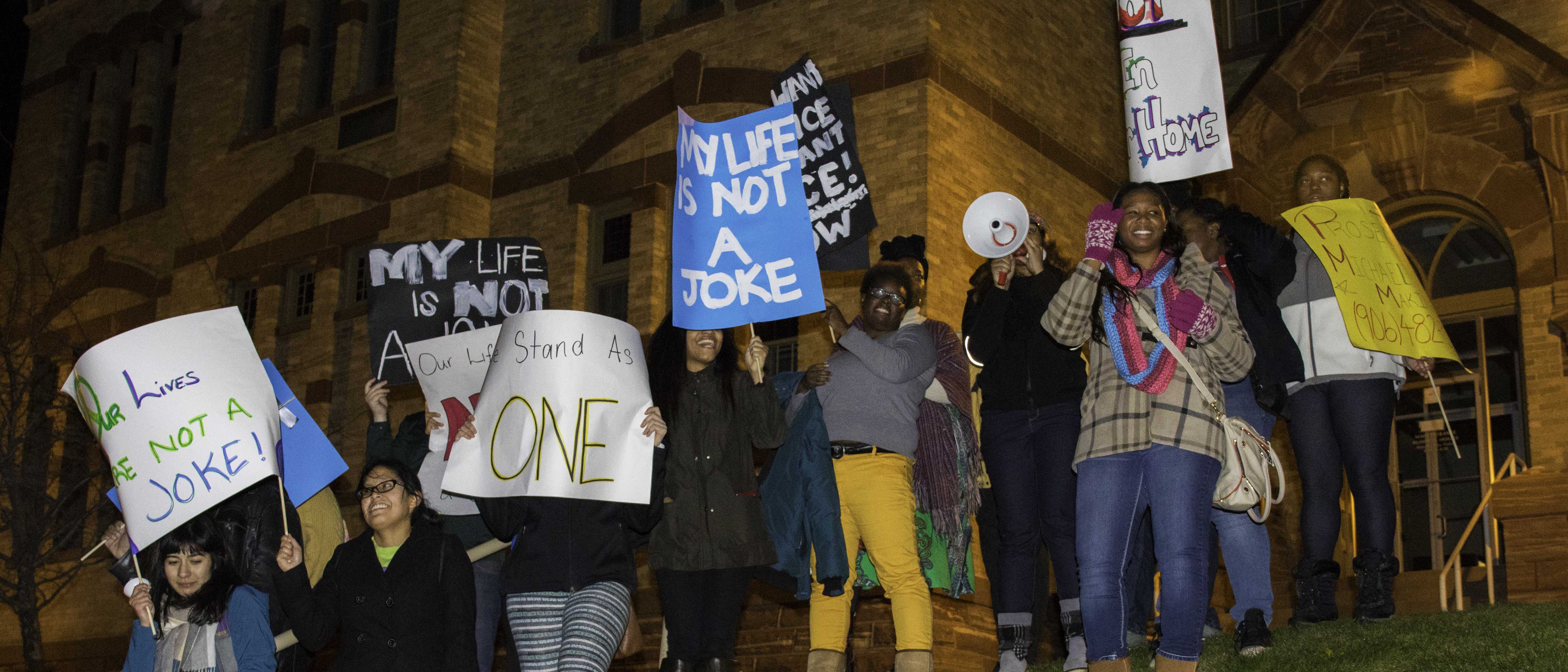In November 2015, Matthew Schultz posted a very poor joke and social commentary on Yik Yak. Another student took a screenshot of the post, edited the post to make it sound like a threat, and sent it Public Safety. Public Safety arrested Schultz based on that information, but all charges against him were later dropped. The school found out that the post was edited and continued to pursue some form of punishment where he was first suspended and then unreasonably expelled. Recently, Matthew Schultz and his lawyers filed a civil suit against Michigan Tech and Ryan Grainger, the former Tech student who edited the post, saying the university wrongly expelled him for a Yik Yak post “threatening” black students’ lives. At the time of this incident, I was not at Tech but on a co-op. I only heard about it briefly on the news, but otherwise forgot about it until I returned for the following semester and talked to several friends about the incident. My experience is unique in the sense I was not surrounded by the constant storm of social media or talk around campus.
At the beginning of this series of events, the university and Public Safety acted swiftly and accordingly with what they thought was a very real threat to its students on campus, and for that they should be commended. Public Safety could not have known that Grainger tweeted and emailed an altered screenshot of the post which significantly changed the meaning of that post. Public Safety appealed to Yik Yak for Schultz’s information, but Yik Yak denied them saying that the post Public Safety possessed was altered and that the situation was not an immediate emergency. Yik Yak complied several hours later after they received a warrant and sent the original post along with the poster’s information, which led them to Schultz. This is where the university began to make mistakes.
The first mistake they made was failing to sit back and reevaluate the situation after learning the information they had was incomplete. Schultz’s arrest may have been warranted in the beginning but would have seemed tenuous post-revelation. According to Schultz, he was not aware of Public Safety’s request with the doctored post to Yik Yak until another student’s Freedom of Information Act request this past spring. Then, either due to the pressure from the despicable blackface Halloween incident or the university’s actual ineptitude, they caved to mob politics.
Over the course of the next couple of months, the university held hearings and suspended Schultz for 18 months even though they dropped most of the student misconduct charges. In the final hearing, the school refused to let Schultz have his lawyer present which is in blatant disregard of the student code. The result was a brutal and disproportionate punishment for Schultz’s actions. In context to the political pressure the media placed on the school, it is not that surprising. The school, however, plays by this rule called “preponderance of evidence” stated in the definitions section of the student code. Essentially, this rule puts the evidence on a scale and whichever side the scale is weightier, even the slightest bit, wins. In this case, the evidence tips towards Schultz, not to mention that all criminal charges that resulted from this incident were dropped.
Schultz probably thought his situation could not get any worse until Bonnie Gorman, Dean of Students, overrode the board that suspended Schultz, reinstated all of the student conduct code charges, and expelled him. She overstepped her bounds when she reinstated school charges against Schultz and expelled him. The student code does not explicitly grant or forbid from doing this. It is comparable to a president issuing executive action to sidestep Congress. While the Constitution may not prohibit the president from doing such, the action is considered unwise because it undermines the checks and balances system built into our government. Bonnie, just because the student code does not explicitly forbid you or grant you powers does not necessarily mean you should use them. Overruling the checks and balances in place puts you precariously close to corruption.
Here are several other tidbits that are important. Never mind the fact that nothing happened to Grainger of which we are aware, who violated several student conduct codes under false reporting and misrepresentation. The school has presented a couple versions of events that do not sound entirely convincing and are contradictory. That alone should make anyone suspicious.
And now to the title of the article: this fine learning establishment preaches and harps on student integrity and tenacity, but what about our administration? Should we not hold them to the same standard to which they hold us? They blatantly ignored the student conduct code. Instead of being transparent from the beginning, they made a scapegoat out of this student to flex their politically correct muscles. They destroyed the only opportunity to have an honest discussion about race issues on campus, and, make no mistake, these issues do exist here and everywhere in this country. The post was a very, very poor joke and ill-advised at best, but Schultz does not deserve to have his name forever marked for his mistakes and the university’s deception.
I want the administration to stand up and publicly admit that they mishandled the situation. I also want them to amend the student conduct code to prevent this abuse again. Please, take responsibility for your actions. And to the students, if the administration does not care about the rights and reputation of this one student, what makes you think they care about your rights and reputation?



One Response
Dean Gorman should resign. That’s how bad she messed up. She needs to leave.